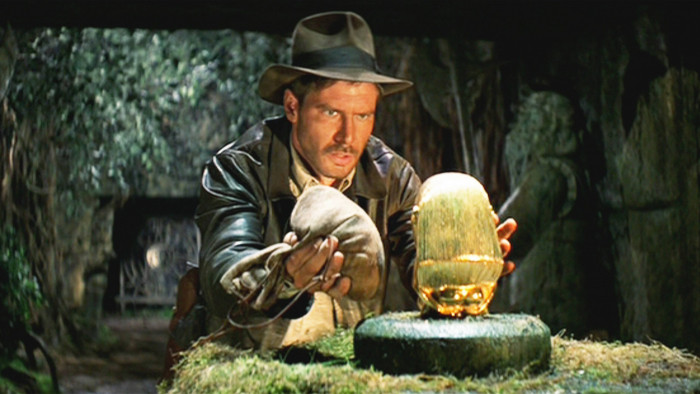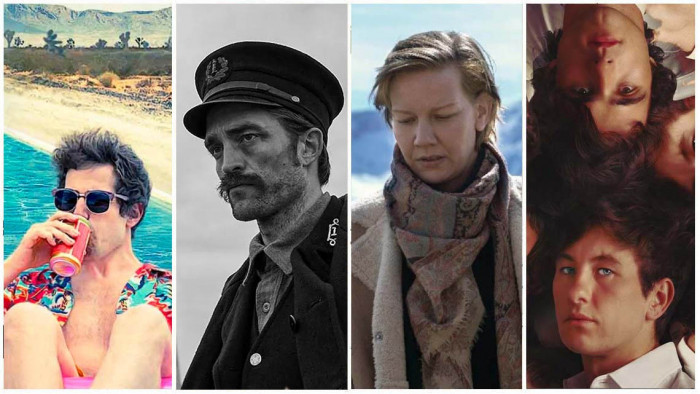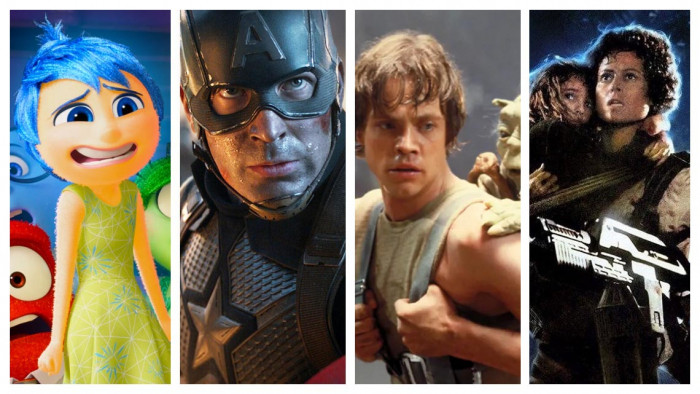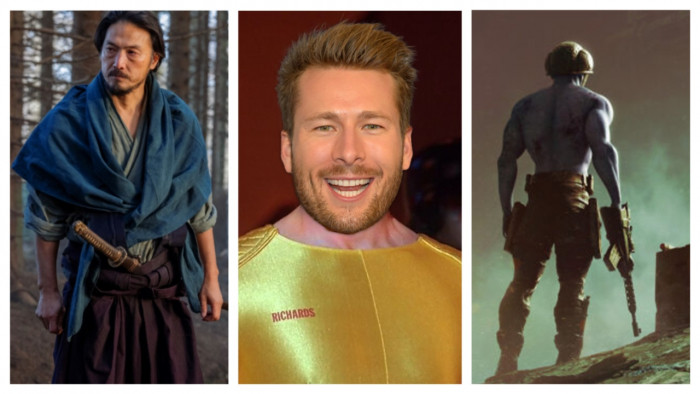Jonathan Nolan tells ShortList’s Nev Pierce about working on his brother Christopher’s new space odyssey
"One of my earliest memories is Chris making space movies,” says screenwriter Jonathan ‘Jonah’ Nolan, reflecting on working, and growing up, with his fêted filmmaking brother Christopher Nolan.
“We used our Star Wars toys to create stop-motion space epics. On Interstellar, I remember standing on the set in one of the spaceships, thinking, ‘Isn’t it odd that this feels so natural?’ It felt extraordinary to me, to realise we hadn’t yet made this film we’d been making since we were kids – and we were finally doing it.”
The 38-year-old British-born, largely US-raised screenwriter – whose Chicago twang contrasts with his older sibling’s English accent – has had several such pinch-me moments in recent years.
First, a cross-country road trip with his brother led to a short story that formed the basis for Chris’s breakthrough 2000 feature, Memento. Then the pair worked closely on The Dark Knight trilogy, which brought Batman back from the cinematic wilderness. And it was when they were on a location scout for The Dark Knight that the younger Nolan was hired to write space adventure Interstellar – for Steven Spielberg.
The legendary director was ready for another galactic ‘close encounter’, having been enthused by the ideas of theoretical physicist Kip Thorne – who worked with Stephen Hawking. Nolan says that they’d been developing a realistic, contemporary space exploration film. “And I came in and pitched something different, which was: if you’re doing a realistic contemporary space mission, the film would last about 15 minutes, as we’re not going anywhere.”
Nolan’s idea, then, was to set Interstellar in a future “in which it was abundantly clear that we were no longer interested, or invested in, manned space exploration; it was now an impossibility. Such an impossibility we had begun, on a cultural level, to deny we’d ever done it in the first place.” In Nolan’s vision, Nasa is an underground organisation and everyone else is, well, a farmer.

To Infinity
It is only when a natural blight affects crops worldwide that it becomes imperative to find another world, or the human race will die. Enter Cooper (Matthew McConaughey), a former pilot who is entreated to join a final desperate quest – with crew Anne Hathaway, Wes Bentley and Brit up-and-comer David Gyasi – to find another world. He knows he could save mankind.
But he also knows he will probably never see his children again. It’s a dilemma Nolan was drawn to when he read the transcript of a sit-down Spielberg and Thorne had with some top astrophysicists and astrobiologists, in which they were all asked whether they would – given the opportunity – take a one-way trip to colonise Mars. “They all said, ‘I’d go in a heartbeat.’ I was struck by that impulse. Here you have this group of very committed family people, but there’s this raw impulse, right? This is a strange set of impulses within human beings; to be very nurturing and very family-oriented, but we also have this little itch in us to explore or push out.”
This wrestle is part of the heart of Interstellar, and it continued once Christopher Nolan replaced Spielberg (who had moved on to other projects). “We all struggle to resolve these two impulses,” says Jonathan. “It’s sort of a story as old as The Odyssey – the story of separation and the tantalising idea of homecoming, that kind of warring impulse.”
Nolan, naturally, isn’t very specific about the details of the story – he wants to preserve its surprises. If we were in the pub together and he was trying to explain it to us, he says, “There are two ways to go. The simplest way is to say it’s the next chapter of the human story. Or our imagining of what that would be. And it’s clear to me, in my more optimistic moments, that the next chapter steps out from this space. The natural step is to leave. But another way to explain it is: it’s about a guy trying to save his kids. Hopefully it operates on both of those levels.”

What would Stanley do?
Visually, there is no hiding the inspiration of Stanley Kubrick’s masterpiece 2001: A Space Odyssey – the monolith that overshadows all space films – but if that film was about discovery, Interstellar is about survival, and family. The hope is to make a grand adventure that deals with a huge theme, but also relates to each of us. After all, who doesn’t suffer from regret over choices – knowing that to achieve one thing you may need to sacrifice another? Not that Jonathan wants Interstellar to seem too serious. “The impulse, for us, is always one of wonder and story – telling a good yarn, right?”
To that end, while there was an effort in the research and writing to ensure the film feels credible, it should also feel spectacular. Visually, whether it is through its images of black holes or wormholes, we will experience space like never before. And with a sequence on an ice planet, filmed in Iceland – while a storm raged so strongly the wind ripped up asphalt – Interstellar aims to coldly go where no man has gone before.
Knowing that his brother always aims to shoot practical effects, rather than using green screen, doesn’t stop Jonathan going to extremes on the page. “I couldn’t give a sh*t how complicated it is,” he says, the implication we’re reading into this – mischievously perhaps – being that, well, that’s Chris’s problem. “You have to be diligent about shutting those things out of your mind as you write.”
The filmmakers’ commitment to creating the sequences, rather than building them in a computer, means they have really felt the emotion and the action they are hoping to convey on screen.
At one point, Jonathan and Christopher were standing with McConaughey on the deck of a spaceship they had climbed five stories of scaffolding to reach. “Chris calls ‘Action!’” recalls Jonathan. “Through the windows of the spaceship you see space, you’re travelling through it – these beautiful plates made by D Neg [Double Negative, the London effects house]. And all of us on the set, we can feel the illusion kick in. Then, after a second, the whole f*cking thing starts shaking. I was reminded what it’s like to be on my brother’s sets – the commitment to building the illusion is so complete. Long before you’re anywhere near a movie theatre, it feels real. It feels real just standing on it.”
It’s that dedication to reality, even in unlikely circumstances, that differentiates the Nolans from many contemporary blockbuster filmmakers. “What I love about working with Chris is that commitment to making these things the old-fashioned way, with total commitment to spectacle,” says Jonathan. “And it works. The audience feels it.”
Interstellar is at cinemas nationwide from 7 November

(Images: Warner)
Latest
Related Reviews and Shortlists


The 10 best war movies of the 21st century









